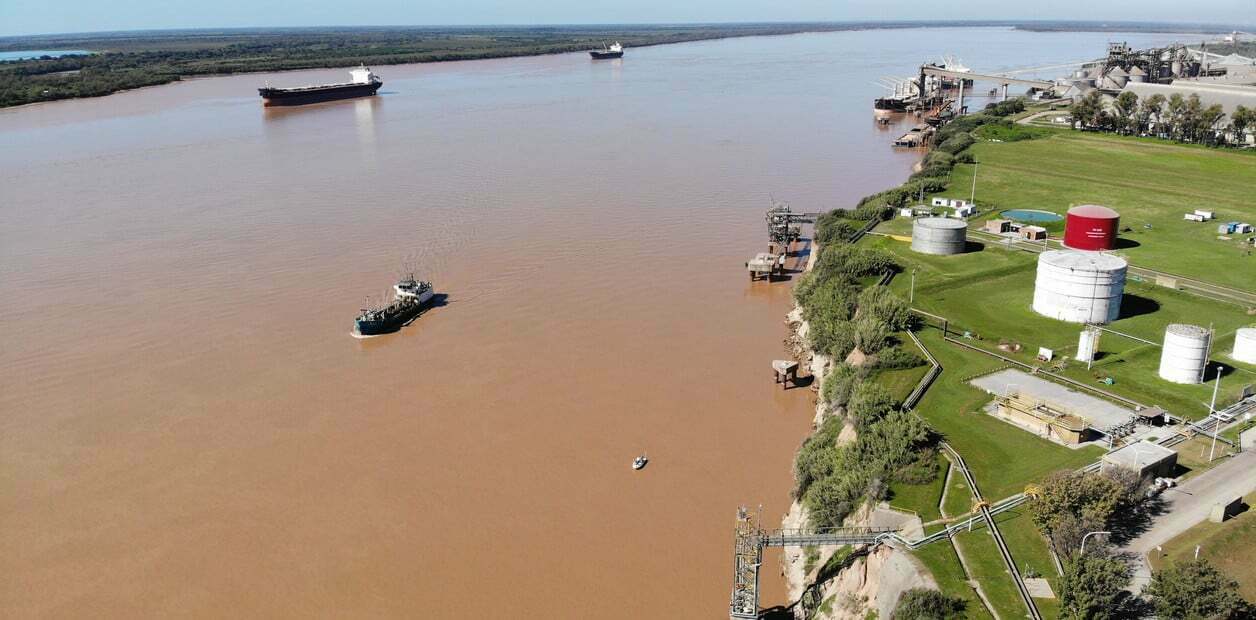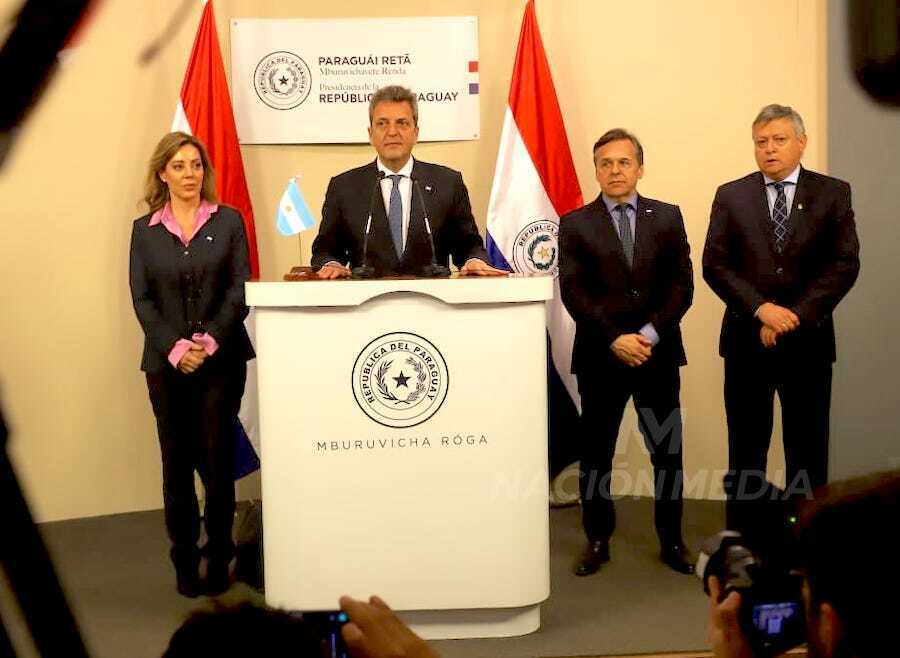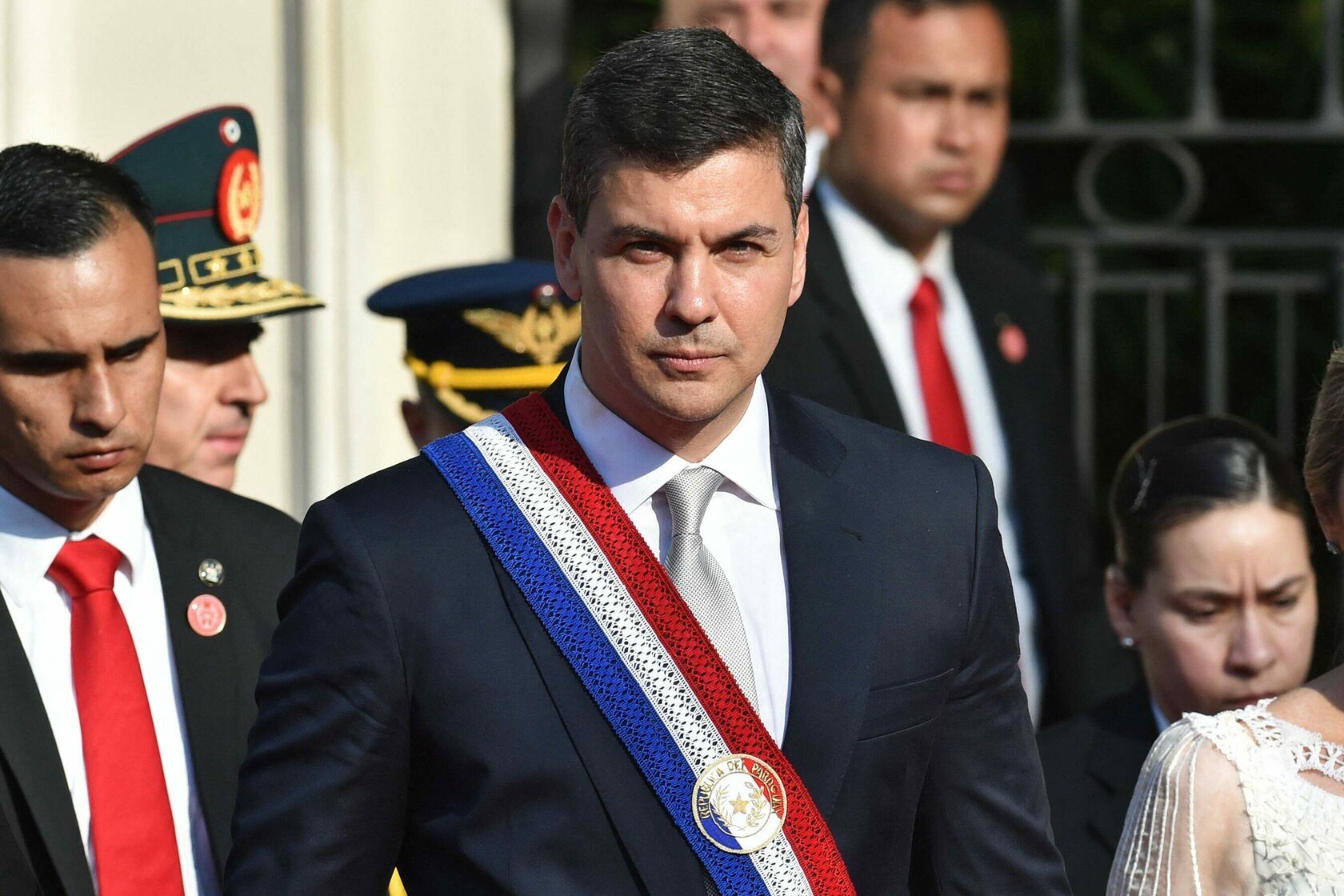In recent months, tensions between Argentina and Paraguay have escalated due to Argentina's unilateral decision to charge a fee for the passage of cargo transport through its territory along the Paraná River. It all began at the end of 2022 when Argentina announced that all ships passing through the Santa Fe and Confluence section must pay $1.47 per ton. This sparked outrage from Paraguay, which heavily relies on the river for import and export. Paraguay criticized this decision, citing the Waterway Agreement signed in 1992 between Paraguay, Argentina, Brazil, Bolivia, and Uruguay. In this agreement (Articles 1, 9, and 4), it is stipulated that all countries can freely use the river for transporting goods under their own or foreign flags, and no country can unilaterally demand payment or impose taxes on anyone. Only charges for performing works on the river are allowed. Argentina, on the other hand, claims that it constantly spends money from its budget to maintain the mentioned stretch of the river to ensure unobstructed passage for all ships. However, it cannot provide substantial evidence of its efforts and still unilaterally decided to stop allocating funds from its budget and start collecting a "passage fee" from January 1, 2023. All parties to the agreement began discussions, and the actual "collection" of money did not occur until September 2023. There were several rounds of negotiations that did not lead to a compromise.

And so, two months before the elections in Argentina, the Argentine customs began to detain Paraguayan ships, demanding payment of the tax. The situation escalated to the point where Argentinians attempted to unilaterally detain a cargo ship on the "binational waters" near the Yacyreta Dam.
After Santiago Peña was elected as the new President of Paraguay, the Minister of Economy of Argentina, Sergio Massa, paid a visit to discuss the river agreement issue. The outcome was paradoxical. The Paraguayan side joyfully announced that both parties agreed to extend the discussion for another 60 days (right after the elections in Argentina). However, the Argentine side later refuted this information and expressed its commitment to collecting the fee in the near future. This caused strong outrage in Paraguay, where they considered the Argentinians to be dishonest. Massa (a presidential candidate in Argentina) claimed there was a misunderstanding on Paraguay's part. It's worth noting that it was the Minister of Economy who visited, not the President of Argentina, and he is running for the presidency (though not leading in the polls).

Currently, Paraguay is taking Argentina to court within the framework of MERCOSUR and other international bodies. Additionally, Paraguay intends to unilaterally reduce the volume of electricity supplied to Argentina.
Rumors have it that in Clorinda, the Paraguayan side has started cracking down on smuggling due to the conflict and has tightened control over the import of products beyond the established limit (you cannot buy anything from Clorinda in terms of groceries exceeding $300 per month). There is a list of current restrictions. Apart from Paraguay, all other members of the agreement have condemned Argentina's actions.
So far, the conflict is purely economic and political, but there is an escalation in the lead-up to the elections.

From my point of view, Argentina is trying to address its political and economic problems at the expense of its relationship with Paraguay and MERCOSUR. Argentina initiated this conflict two months before the elections, where the semi-libertarian candidate Milei is leading, which seems not coincidental. The current Kirchnerist government is attempting to use the conflict to influence the elections. Otherwise, why would Argentina engage in a conflict with Paraguay when there is a high likelihood of losing power in a couple of months? Those who think about their country always look at the long term, regardless of whether they will be in power in 5 years or not. Making such decisions a couple of months before the elections doesn't make sense. Claims that Argentina is "tired" of financing river support are absurd. Argentina supported it for 28 years without issues. It's only when a severe economic crisis hit in recent years that they suddenly claim to be "tired." Not to mention that no one asked them to "support river infrastructure." If they don't like the agreement, they can simply withdraw from it. What's the problem? Some suggest that since Milei is an ardent anti-communist, the current conflict may be supported by China, which wants access to the river and the market for its products, in exchange for some portion of its US government bonds, which Kirchnerists desperately need to stay afloat and overcome the crisis quickly. Perhaps that's the case. Argentina is leveraging its position and blackmailing Paraguay for $50 million annually, knowing that Paraguay doesn't have many alternatives. Paraguay is sandwiched between larger countries, and its only waterway access to the ocean is through Argentina. There are alternative routes via land with Uruguay, but they are longer due to the territory seized from Paraguay (now the Argentine department of Misiones) during the Triple Alliance War. 70% of Paraguay's exports go through the river. Paraguay doesn't deny that Argentina could have made some improvements for river navigability but demands that everything be coordinated with other treaty members. As it stands, Argentina arbitrarily set a figure and decided to collect money from everyone on its own.
Additionally, it's mentioned that due to these taxes, many ships have started using the Paraguayan flag. As a result, Argentina has gone from having 1,100 river vessels to only 10. Most have transitioned to Paraguay. This has led to reduced tax revenue for Argentina. While this might be unfortunate for the big brother, what prevents Argentina from lowering taxes or attracting companies to its side? It seems like Paraguay is being blamed for the fact that a socialist state, which wants to control everything and extract the last bit from the productive class, can't reduce the tax burden or bureaucracy. It appears that Argentina is primarily focused on how to burden someone with taxes to support a deficit-ridden system that can't escape the crisis. And now they've found Paraguay, a neighbor weaker in terms of economic and military power, and geographically isolated from the ocean, with a small population, as a source from which they can extract more money to plug their budget holes.
We'll have to see how the new President of Argentina, whoever wins, decides to resolve this conflict after the elections.
P.S: In Argentine media, there were surprised mentions of the thesis about why Paraguay is so outraged. They say it's not Paraguay that will pay but "private companies." The quintessence of the logic of government management in Argentina. The idea that ultimately the additional charge will affect prices for the population and the collection of taxes as a whole is unknown to Argentinians. They somehow separate the prosperity of the private sector and the government sector in such a way that the deterioration of the private sector's well-being does not in any way affect the well-being of the government sector, and vice versa.

